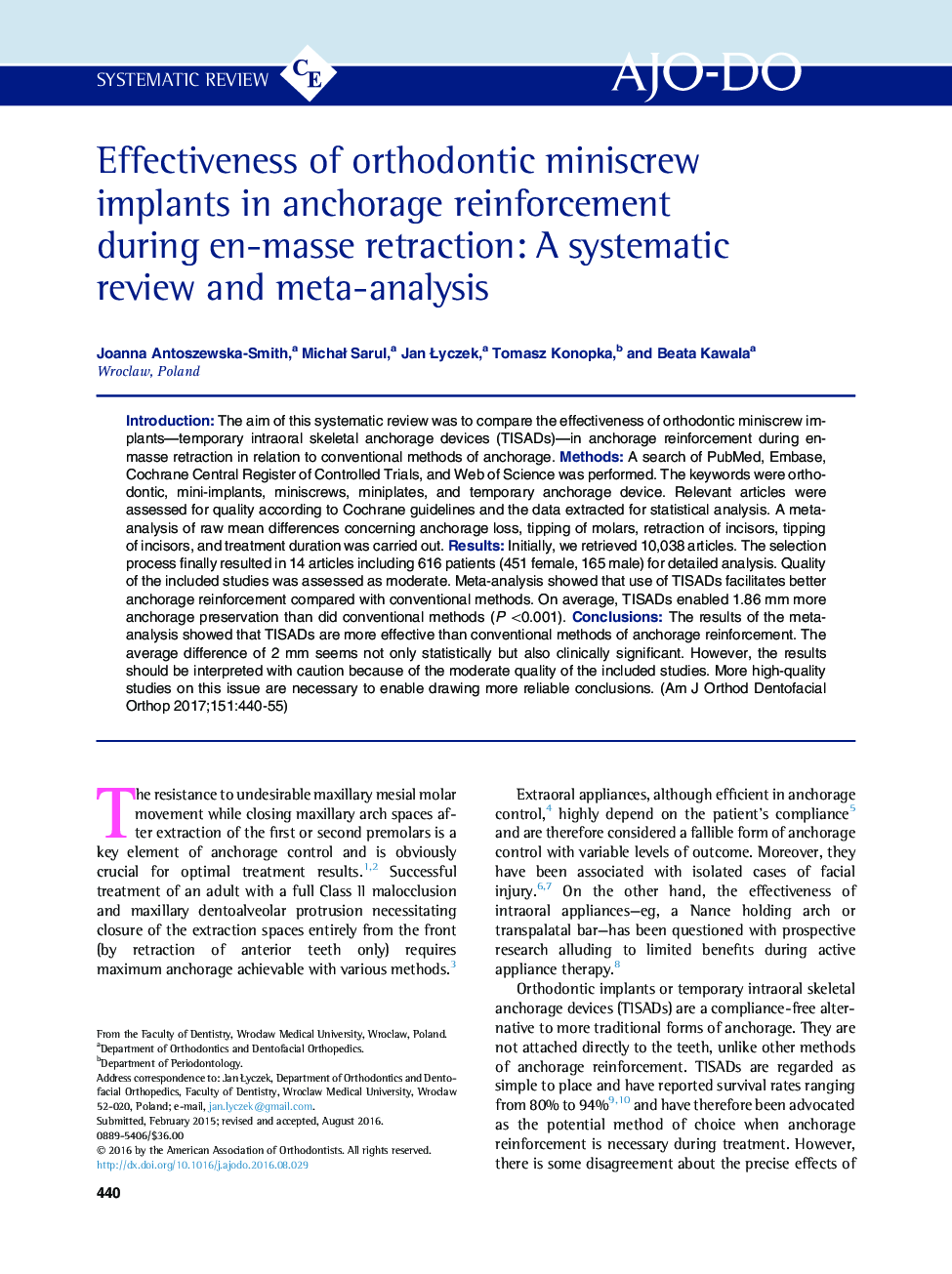| Article ID | Journal | Published Year | Pages | File Type |
|---|---|---|---|---|
| 5637712 | American Journal of Orthodontics and Dentofacial Orthopedics | 2017 | 16 Pages |
â¢Effectiveness of temporary intraoral skeletal anchorage devices (TISADs) was assessed.â¢Fourteen articles representing 616 patients with TISADs were selected for meta-analysis.â¢Quality of the included studies was moderate.â¢TISADs were more effective than conventional methods of anchorage reinforcement.â¢The average difference of 2 mm was statistically and clinically significant.
IntroductionThe aim of this systematic review was to compare the effectiveness of orthodontic miniscrew implants-temporary intraoral skeletal anchorage devices (TISADs)-in anchorage reinforcement during en-masse retraction in relation to conventional methods of anchorage.MethodsA search of PubMed, Embase, Cochrane Central Register of Controlled Trials, and Web of Science was performed. The keywords were orthodontic, mini-implants, miniscrews, miniplates, and temporary anchorage device. Relevant articles were assessed for quality according to Cochrane guidelines and the data extracted for statistical analysis. A meta-analysis of raw mean differences concerning anchorage loss, tipping of molars, retraction of incisors, tipping of incisors, and treatment duration was carried out.ResultsInitially, we retrieved 10,038 articles. The selection process finally resulted in 14 articles including 616 patients (451 female, 165 male) for detailed analysis. Quality of the included studies was assessed as moderate. Meta-analysis showed that use of TISADs facilitates better anchorage reinforcement compared with conventional methods. On average, TISADs enabled 1.86Â mm more anchorage preservation than did conventional methods (PÂ <0.001).ConclusionsThe results of the meta-analysis showed that TISADs are more effective than conventional methods of anchorage reinforcement. The average difference of 2Â mm seems not only statistically but also clinically significant. However, the results should be interpreted with caution because of the moderate quality of the included studies. More high-quality studies on this issue are necessary to enable drawing more reliable conclusions.
